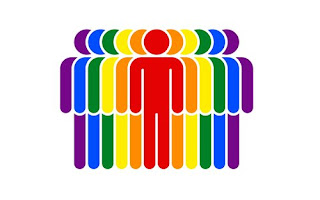YA Literature
As a hopeful future educator, it is
important to acknowledge the fact that it can be extremely difficult for a
student to focus on and learn from classroom instruction if their personal and
psychological needs are not being met. It is simplistic to believe that a
student going through a personal crisis will be able to focus on and interact
with content material in the traditional way. Jasmine Wanga addresses this in her YA novel, “My
Heart and other Black Holes”. Aysel, a 16-year-old growing up in a small
southern town, is convinced that her father’s prison sentence for homicide
against a hometown hero is inescapable. Feeling tightly wound to the sins of
her father, she sees suicide as the only option.
The “black slug” inside her, which is
how she refers to her depression, follows Aysel throughout the day, and creeps into
the classroom. She acknowledges its presence in her English class, as she is
frustrated with the seemingly petty interpretations of poets her peers. While in class, Aysel can’t help but think to herself, “Mrs. Marks makes this
big production of trying to decode what the poets were saying. From my
perspective, it’s pretty clear: I’m depressed and I want to die. It’s painful
to watch all my classmates tear apart each line, looking for significance. There’s
no significance, anyone who has actually been that sad can tell you that there’s
nothing beautiful or literary or mysterious about depression”.
After learning about Maslow’s hierarchy
of needs, it is clear that it is applicable to both Aysel and my future
classroom. With Aysel, the bottom rung of the hierarchy, physiological needs,
such as food, water and shelter are being met. It is the next category of safety,
where Aysel is struggling. She may have economic security, but is clearly struggling
with a serious mental illness. According to Maslow’s theory, this could be why
she is struggling in class so much. She also feels no sense of belonging which is
the next level of the hierarchy. She feels ostracized by her peers and feels like misfit within her own family. Between these two types of basic needs that
are not being met, it makes sense why Aysel is having such a difficult time in English
class.
Reading this YA novel offers an interesting
perspective on how much of their “real life” a student brings into a classroom. As a
teacher, it will be important to take the attitudes and personal happenings of
my students into account, especially because each students perspective is so
different. This will also be a challenge because it is sometimes the case that
students hide their struggles, especially from authority figures. As the novel
progresses I am interested to see the situation from Aysel’s perspective, and
the struggles she faces, in hopes to ensure my future students do not face the
same obstacles.


I completely agree that if students are struggling with something psychologically, then it would be incredibly difficult for them to focus during class. I also loved how you applied Maslow's Hierarchy of Needs!
ReplyDeleteI wonder, if as a future educator being aware of Maslow's Hierarchy of Needs, how you could be a protective factor for your students, especially if you may know that they could be struggling with a mental illness. It is important to acknowledge the risk factors our students have faced as they enter our classrooms.
ReplyDelete